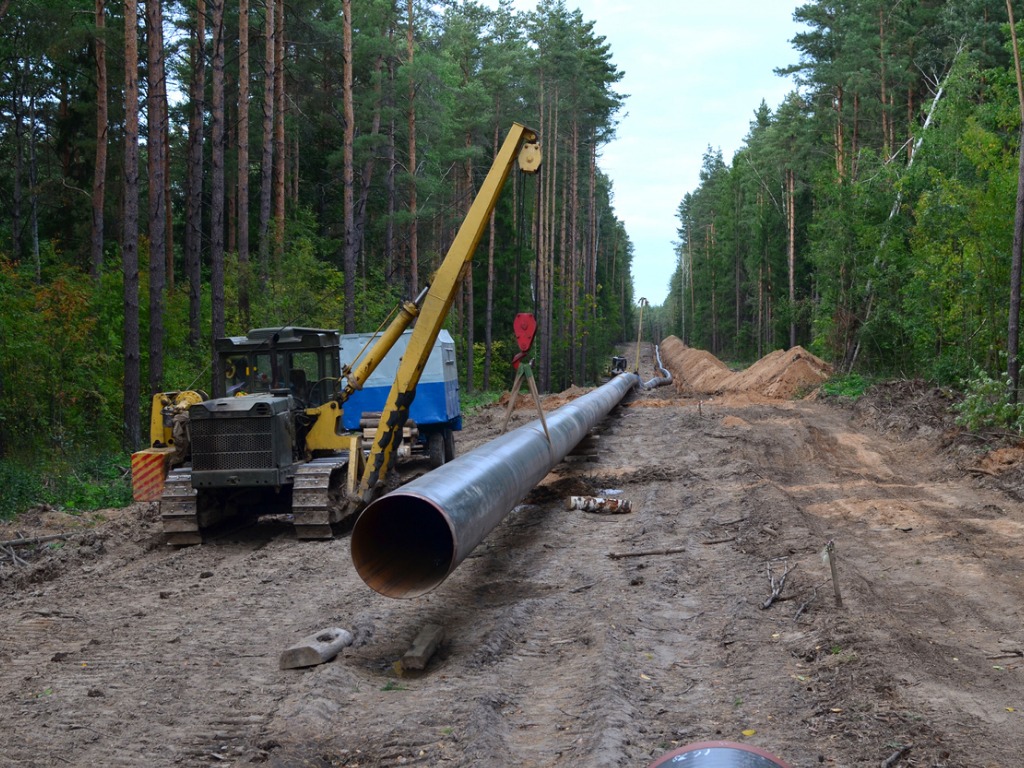A geologist who worked on the Mariner East pipeline in Pennsylvania has claimed that Sunoco/Energy Transfer, the company in charge of building the pipeline, “prevented him and other geologists from inspecting and reporting on dangerous subsidence, or sinkholes, during construction,” according to an October 7 StateImpact Pennsylvania article.
The whistleblower claims are described in a notice of intent from the Clean Air Council to sue Sunoco Pipeline L.P. (SPLP) for violating the Pennsylvania Clean Streams Law. SPLP allegedly told the geologists working on the project to “classify potentially dangerous conditions, including subsidence, i.e., sinkholes, as ‘earth features’ in geologists’ reports” so that the Pennsylvania Department of Environmental Protection (DEP) would not need to conduct further reviews, according to the notice of intent.
Additionally, the whistleblower claims SPLP made changes to their “reporting practices sometime in early 2020,” which involved “making professional geology reports editable by nongeologists, requiring picture captions to be editable, and depriving the inspecting geologists of information necessary to make a complete and accurate report,” the report being an element that the Erosion and Sediment (E&S) Control permits required, according to the notice of intent.
Professional geologists, or PGs, were allegedly limited in their work by SPLP’s Limit of Disturbance Policy: the notice of intent states that this policy “limits the PGs from inspecting potentially dangerous environmental conditions, except if they were inside of an arbitrarily designating and poorly delineated boundary.” The whistleblower alleges that if PGs violated the policy, they could face termination.
Tim Fitchett, a staff attorney for Fairshake Environmental Legal Services, represents the Clean Air Council in this case. Fitchett told StateImpact Pennsylvania that “Sunoco fired the geologist after he reported a sinkhole in Chester County that lay outside the area defined by the company’s ‘limited disturbance policy.’” Fitchett also said that the geologist whistleblower observed Sunoco’s mishandling of a sinkhole report that defied the E&S permit rules.
“Sunoco is so scared of what its scientists will find in investigating its pipeline construction that it’s muzzled them and doctored their reports,” said Joseph Minott, executive director and chief counsel of Clean Air Council.
In 2017, Clean Air Council sued Sunoco, and the case ended in a settlement agreement “with the company and DEP,” according to StateImpact Pennsylvania.
The Pennsylvania Clean Streams Law states that “a citizen suit requires 60-day notification to the defendant,” so within that timeframe, “Sunoco could reach an agreement with Clean Air Council to change its practices, or DEP could intervene in the case,” according to StateImpact Pennsylvania. Neither DEP nor Sunoco has commented on the notice of intent, but Fitchett said, “both the DEP and the Pennsylvania Attorney General’s office are aware of the whistleblower’s claim,” according to StateImpact Pennsylvania.
Read more about the whistleblower’s claims in the full notice of intent.
